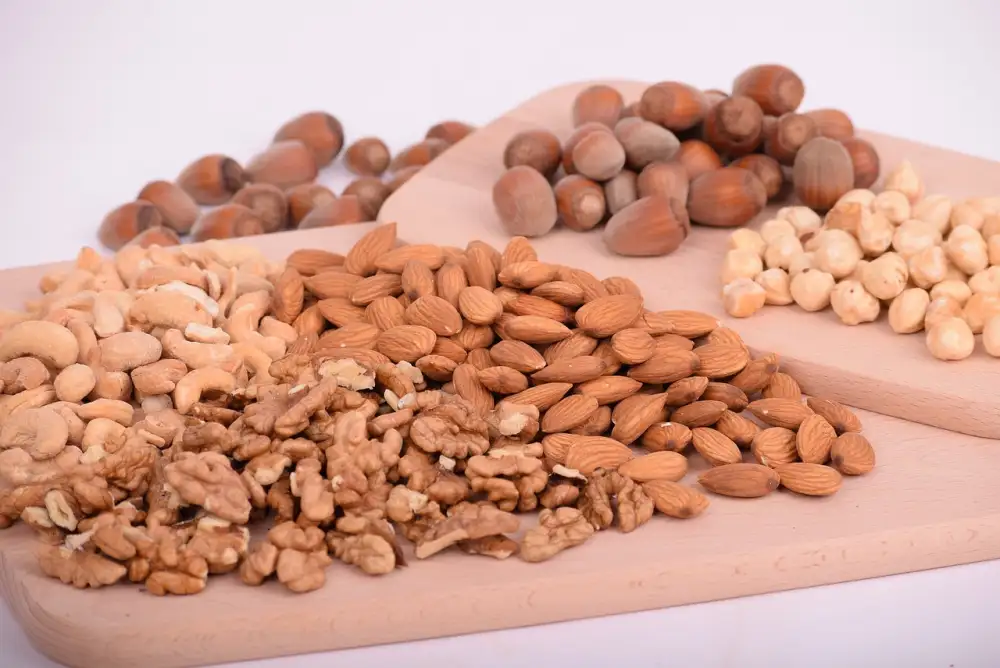Power up Your Health with High Protein Vegetarian Foods: A Delicious Plant-Based Source of Protein

- Benefits of incorporating high protein vegetarian foods into your diet
- Top sources of protein for vegetarians
- Legumes: A powerhouse of protein for vegetarians
- Nuts and seeds: Protein-packed options for vegetarians
- Whole grains: A nutritious source of protein for vegetarians
- Dairy and plant-based alternatives: Protein-rich choices for vegetarians
- Incorporating high protein vegetarian foods into your meals
- Delicious and easy recipes featuring high protein vegetarian foods
In recent years, there has been a growing interest in vegetarianism and plant-based diets. Many people are looking for ways to incorporate more plant-based protein into their meals. High protein vegetarian foods offer a delicious and nutritious alternative to traditional sources of protein like meat and fish. Whether you are a vegetarian or simply looking to reduce your meat consumption, these plant-based options can power up your health while satisfying your taste buds. In this article, we will explore the benefits of incorporating high protein vegetarian foods into your diet and discover the top sources of protein for vegetarians. Get ready to embrace a protein-rich vegetarian lifestyle for optimal health!
Benefits of incorporating high protein vegetarian foods into your diet
Incorporating high protein vegetarian foods into your diet offers numerous benefits for your overall health and well-being. Firstly, these plant-based protein sources are typically low in saturated fat and cholesterol, making them heart-healthy options. Secondly, they are rich in fiber, which aids in digestion and helps maintain a healthy weight. Additionally, high protein vegetarian foods provide essential nutrients such as vitamins, minerals, and antioxidants that support immune function and promote cell repair. By choosing these nutritious alternatives, you can enjoy the benefits of a balanced diet while embracing a compassionate lifestyle.
Top sources of protein for vegetarians
For those following a vegetarian diet, it is important to ensure an adequate intake of protein. Luckily, there are plenty of plant-based options that are high in protein. Some top sources include legumes, nuts and seeds, whole grains, and dairy or plant-based alternatives.
Legumes such as lentils, chickpeas, and black beans are not only rich in protein but also packed with fiber and essential nutrients. They can be easily incorporated into soups, stews, salads, or even made into delicious veggie burgers.
Nuts and seeds like almonds, chia seeds, and hemp seeds are excellent sources of protein. They can be enjoyed as snacks or added to smoothies, oatmeal, or baked goods for an extra boost of protein.
Whole grains like quinoa, brown rice, and oats provide a good amount of protein along with other important nutrients like fiber and minerals. These grains can be used as a base for salads or served as a side dish with vegetables.
Dairy products such as Greek yogurt and cottage cheese are high in protein and calcium. For those following a vegan diet or who have lactose intolerance, there are various plant-based alternatives like soy milk or almond milk that also offer a good amount of protein.
Incorporating these top sources of protein into your vegetarian meals will not only help meet your daily protein needs but also provide you with a wide range of nutrients necessary for optimal health.
Legumes: A powerhouse of protein for vegetarians
Legumes, such as beans, lentils, and chickpeas, are a true powerhouse of protein for vegetarians. These plant-based wonders are not only rich in protein but also packed with essential nutrients like fiber, iron, and folate. Incorporating legumes into your diet can help you meet your daily protein needs while promoting heart health and aiding in weight management. From hearty bean soups to flavorful lentil curries, legumes offer endless possibilities for delicious and nutritious vegetarian meals. So why not add some legume power to your plate and reap the benefits of these protein-packed gems?
Nuts and seeds: Protein-packed options for vegetarians
Nuts and seeds are excellent sources of protein for vegetarians. These tiny powerhouses are packed with essential amino acids, healthy fats, and fiber. Almonds, walnuts, cashews, and pistachios are all rich in protein. They can be enjoyed as a snack or added to salads, stir-fries, or baked goods for an extra protein boost. Chia seeds, flaxseeds, hemp seeds, and pumpkin seeds are also great options. Sprinkle them on top of yogurt or oatmeal, blend them into smoothies, or use them as a crunchy topping for roasted vegetables. Incorporating nuts and seeds into your diet is not only delicious but also a nutritious way to meet your protein needs as a vegetarian.
Whole grains: A nutritious source of protein for vegetarians
Whole grains are not only a great source of carbohydrates and fiber, but they also provide a significant amount of protein for vegetarians. Incorporating whole grains into your diet can help you meet your daily protein needs while providing essential nutrients.
Quinoa is one of the most popular whole grains that is packed with protein. It contains all nine essential amino acids, making it a complete protein source. Other whole grains like brown rice, barley, and oats also contain decent amounts of protein.
To maximize the protein content in your meals, try adding whole grain products such as bread, pasta, and cereals made from quinoa or brown rice. These options are not only delicious but also provide a substantial amount of protein to keep you energized throughout the day.
Including whole grains in your vegetarian diet can contribute to overall health and well-being. They are low in fat and cholesterol-free, promoting heart health and reducing the risk of chronic diseases. So make sure to include these nutritious grains in your meals for a protein-packed vegetarian lifestyle.
Dairy and plant-based alternatives: Protein-rich choices for vegetarians
Dairy and plant-based alternatives are excellent sources of protein for vegetarians. Dairy products like milk, yogurt, and cheese are not only rich in protein but also provide essential nutrients like calcium and vitamin D. Plant-based alternatives such as soy milk, almond milk, and coconut milk are fortified with protein to meet the needs of vegetarians. Other plant-based options include tofu, tempeh, and seitan, which are versatile and can be used in a variety of dishes. These dairy and plant-based alternatives offer delicious ways to incorporate high-quality protein into your vegetarian diet.
Incorporating high protein vegetarian foods into your meals
Incorporating high protein vegetarian foods into your meals is easier than you might think. Start by swapping out meat with plant-based protein sources like tofu, tempeh, or seitan in your favorite recipes. Add beans or lentils to soups, stews, and salads for an extra protein boost. Sprinkle nuts and seeds on top of your breakfast cereal or yogurt for a crunchy protein-packed addition. Experiment with different types of whole grains like quinoa, brown rice, or barley as the base for your meals. And don't forget about dairy and plant-based alternatives like Greek yogurt, almond milk, or soy cheese to add protein to your snacks and desserts. With these simple substitutions and additions, you can easily incorporate high protein vegetarian foods into your daily meals and enjoy the health benefits they provide.
Delicious and easy recipes featuring high protein vegetarian foods
Delicious and easy recipes featuring high protein vegetarian foods are a great way to incorporate plant-based proteins into your diet. Here are a few ideas:
1. Quinoa and Black Bean Salad: Combine cooked quinoa, black beans, diced vegetables, and a zesty dressing for a protein-packed salad.
2. Lentil Curry: Cook lentils with aromatic spices, tomatoes, and coconut milk for a flavorful and filling curry dish.
3. Chickpea Tacos: Fill corn tortillas with seasoned chickpeas, avocado slices, salsa, and fresh cilantro for a tasty vegetarian twist on tacos.
4. Tofu Stir-Fry: Sauté tofu with colorful vegetables in a soy-ginger sauce for a quick and nutritious stir-fry option.
5. Spinach and Feta Stuffed Portobello Mushrooms: Stuff portobello mushroom caps with sautéed spinach, feta cheese, and breadcrumbs before baking them until tender.
These recipes showcase the versatility of high protein vegetarian foods while providing delicious options that everyone can enjoy.
In conclusion, incorporating high protein vegetarian foods into your diet can have numerous benefits for your health and well-being. By choosing plant-based sources of protein, you can power up your health while also reducing your environmental footprint. Whether you opt for legumes, nuts and seeds, whole grains, or dairy and plant-based alternatives, there are plenty of delicious options to choose from. Embracing a protein-rich vegetarian lifestyle not only provides the necessary nutrients for optimal health but also allows you to explore new flavors and culinary creations. So why not start today and experience the joys of a plant-based protein journey? Your body and the planet will thank you!
Published: 07. 12. 2023
Category: Health



